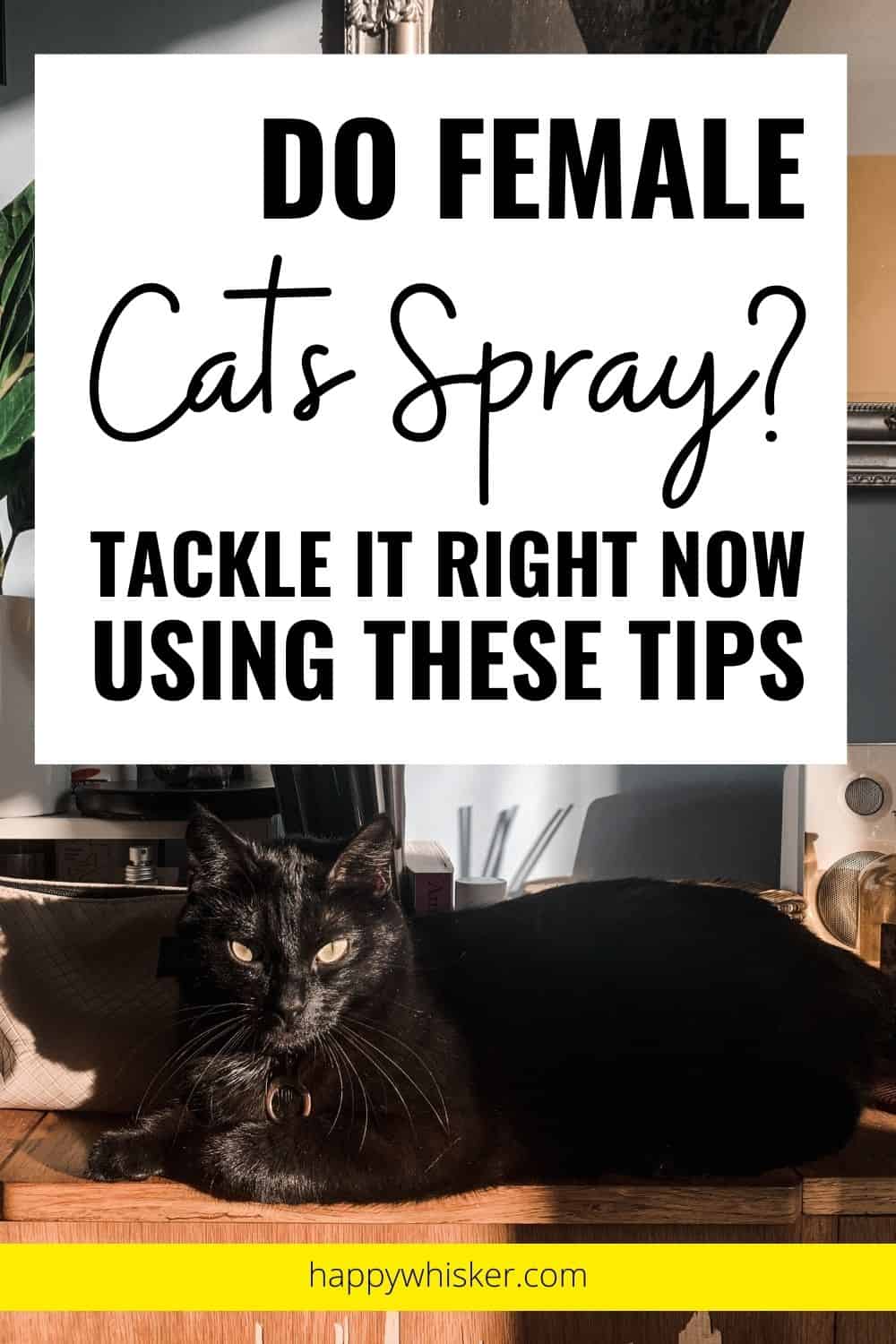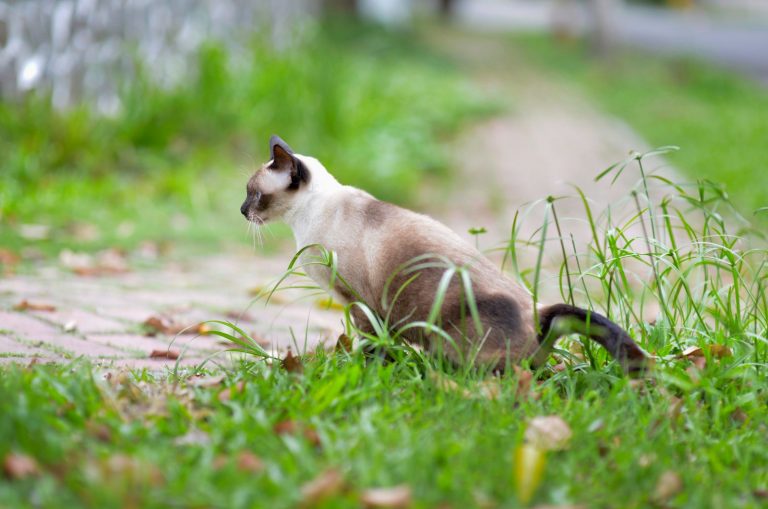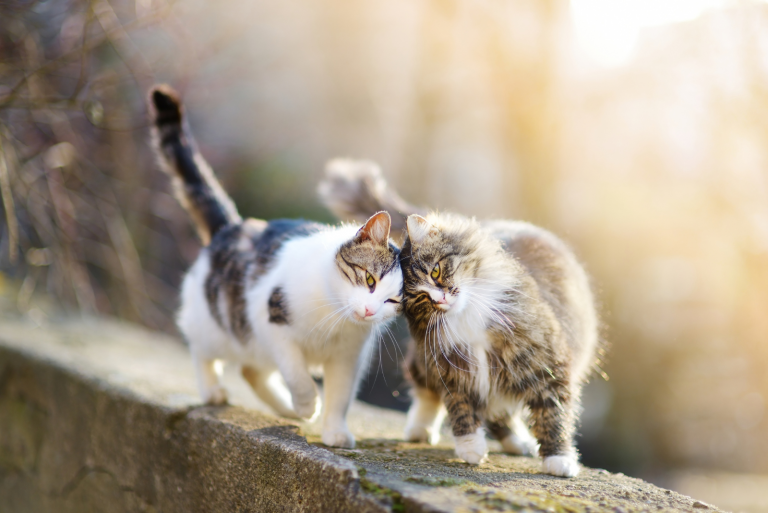Do Female Cats Spray? Tackle It Right Now Using These Tips
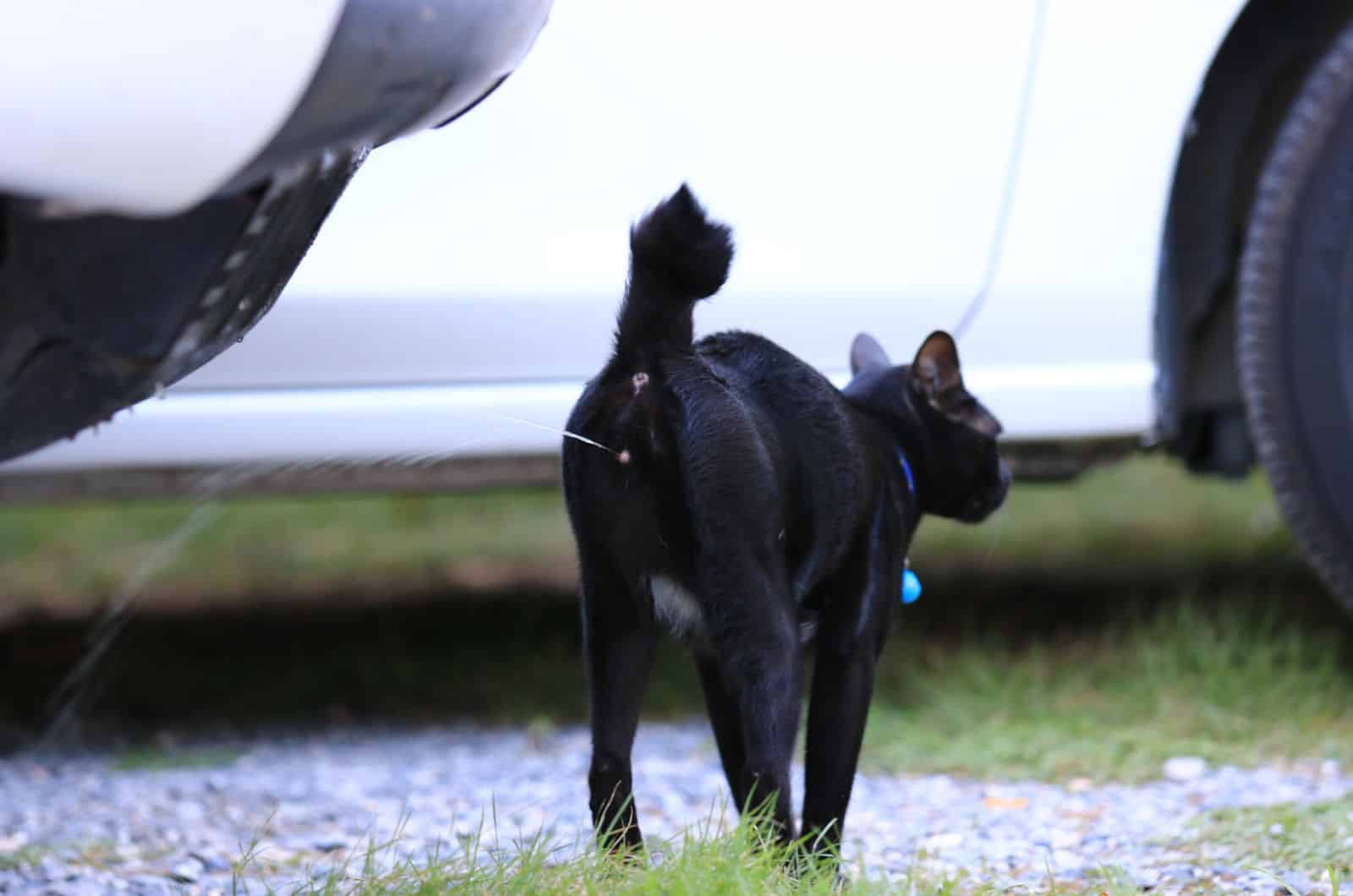
I’m currently fostering six cats and I absolutely love it. However, I absolutely do not love the smell of cat pee. It might even be the number one thing on my “Things I Hate” list.
Having all these cats in my home now, and having previously fostered many cats too, I can say I know quite a bit about cat urination and cat spraying habits.
If you’re wondering Do female cats spray?, the answer is simple – Yes, they do!
Trust me, I am telling you from my own personal experience. I have a one passionate spray-loving female cat right next to me as I’m writing this…
This article will cover all aspects of spraying, including causes of spraying in female cats and ways of preventing it. To learn more, just keep reading!
Do Female Cats Spray?
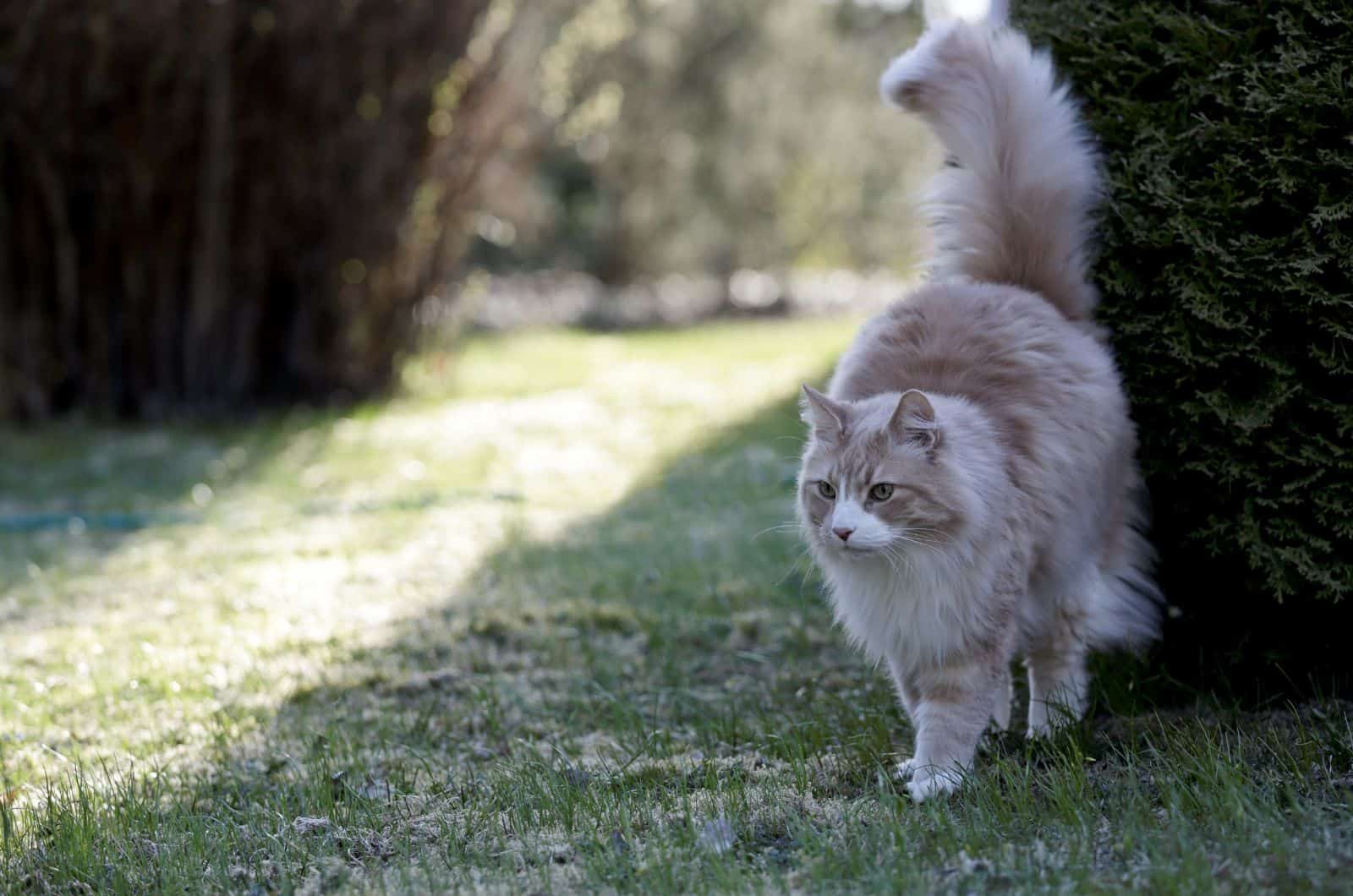
Before I say anything else, let’s briefly explore what spraying actually is.
Spraying is a form of inappropriate urination, characterized by the cat releasing small amounts of urine onto vertical surfaces (such as walls or the sides of the furniture).
In order to not mix up normal urination with spraying, let’s look at the most important differences between the two.
[table id=267 /]
It’s a common misconception that only male cats spray. Spraying is not sex-related, so both male and female cats may display this cat behavior. Don’t be surprised to catch your female cat spraying!
Why Do Female Cats Spray?
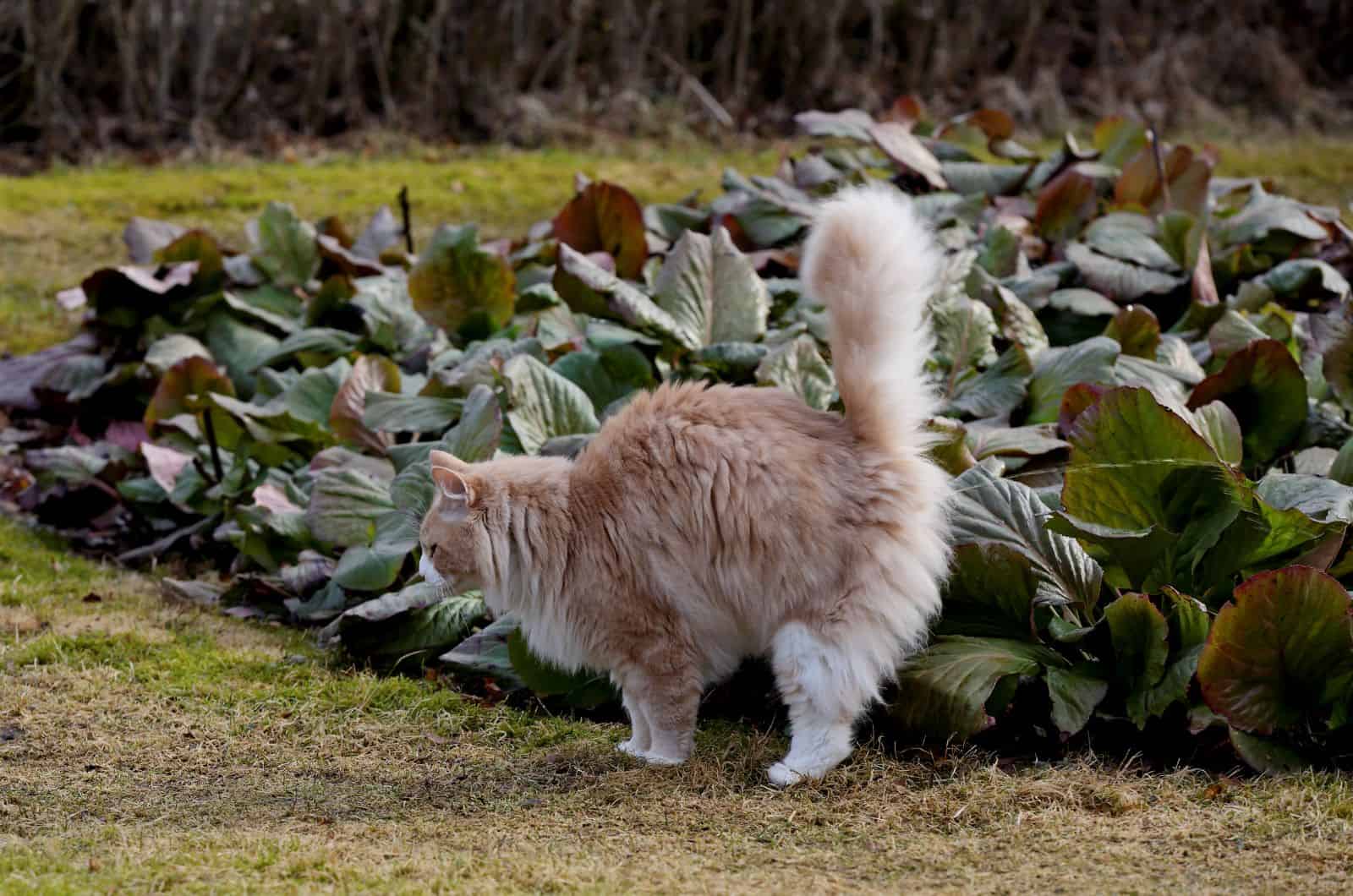
1. They Feel Threatened
Both male and female cats can spray for the same reason – they feel threatened.
This may because of:
• A new cat in the house
• A new pet in the house (such as a dog, a rabbit, or even a bird)
• Strangers in the house
• A neighbor’s dog (or a stray dog) in your backyard
• A neighbor’s cat (or a stray cat) in your backyard
Cats are territorial creatures. Whenever they feel like someone/something has invaded with no right to be on their territory, they feel threatened and defensive.
One way female cats cope with being threatened is by marking their territory. This provides them with some sense of reassurance that they will be fine, as long as the “threat” knows not to step on their territory. This is their way of warning potential invaders that this patch is taken.
If you have a multi-cat household, I’m sure you will see this territory-marking behavior often, especially if your cats are prone to fighting each other.
2. They’re Under Stress
You probably already know that cats can suffer from stress.
What could be causing your female cat to be stressed? The most common causes are:
• Moving to a new home (means your cat has lost its previous territory, which is hard for them)
• Having a lot of strangers in the house (for example, having a gathering or a party)
• Having a new baby or a new pet in the house (this means someone new is on their territory, someone the cat is not familiar with)
• Being in an environment with a lot of noise (for example, construction work being done)
• Having a dirty litter box, food bowl, or water bowl (cats are very clean animals, and they like their environment clean too)
• Changing the location of the litter box, food bowl, or water bowl (sensitive kitties can even be stressed by what may seem like small changes)
Spraying is a stressed cat’s way of letting their owners know that something is wrong.
3. They’re In Heat
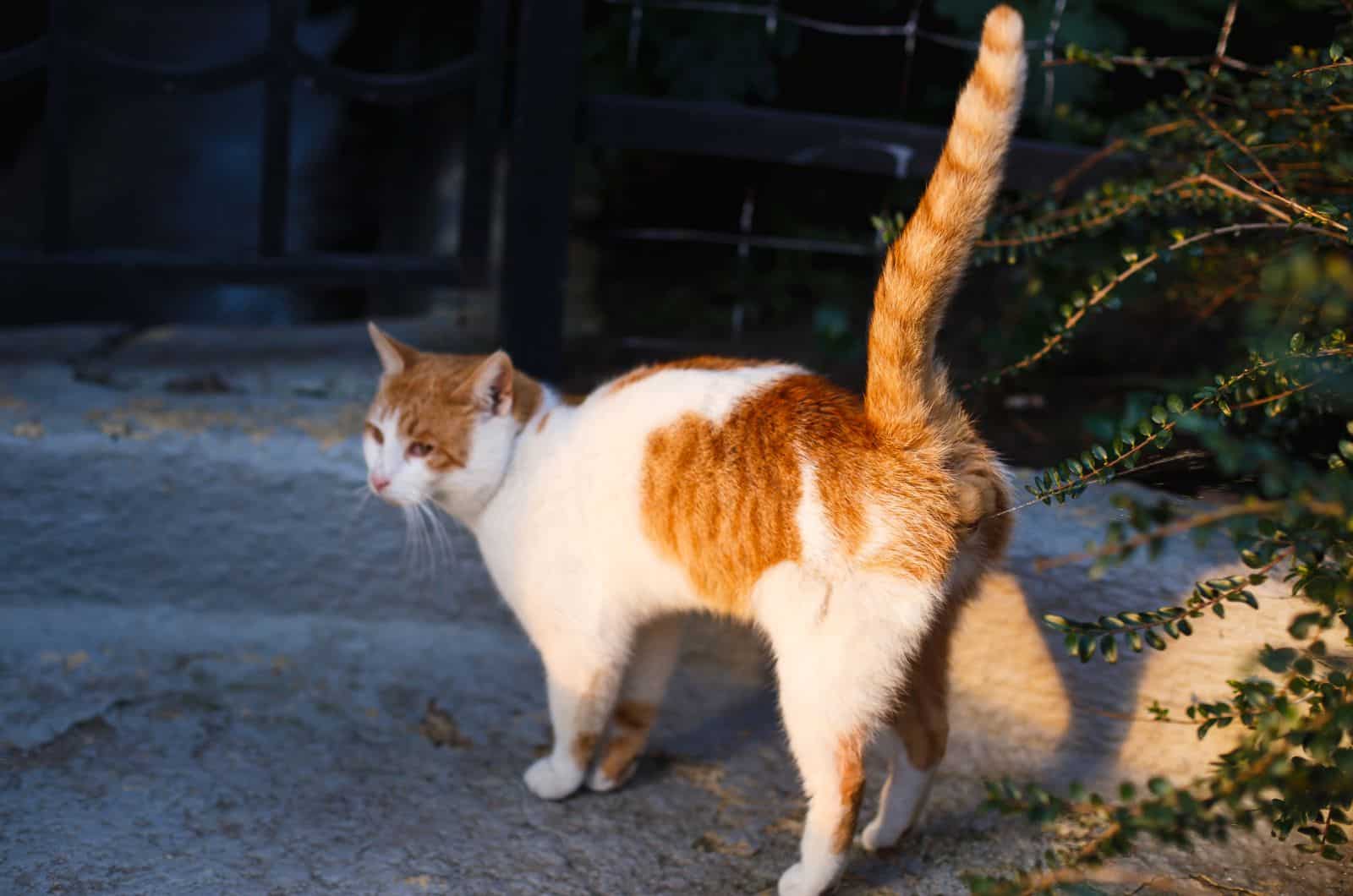
It is well known that unneutered males are prone to spraying. This is a way of letting female cats know Hey, I’m ready for mating! You might be surprised to learn that female cats do this too!
Female cats spray while in heat in order to attract male cats. You can observe this happening as soon as the female cat reaches sexual maturity, which occurs when the cat is around 6 months of age.
Do Female Cats Still Spray Even After Spaying?
Although it would make sense for a female cat to completely stop spraying after being spayed, that is not always the case.
Some female cats retain their spraying-habits even after having this procedure performed.
They may continue spraying, but for different reasons! Although a spayed female cat will not spray to attract males, it may still spray to mark its territory.
However, the reported percentage of female cats that continue spraying after being spayed is very low – only about 5%!
4. They’re Protesting Against The Litter Box
Cats are well-known for keeping themselves and their environment very clean. So you can bet they’ll let you know if their environment (such as their litter box) isn’t clean! How? By protesting!
One way for a female cat to show its dissatisfaction is to spray. So, what could be the potential issue with the litter box? It could be that you’ve forgotten to clean the litter box and now it’s filled with cat poo.
Other than the cleanliness-issue, it can simply be that your cat does not like the new litter box you bought. Or you’ve switched to a new type of cat litter and your cat does not like it. Maybe you even overfilled the litter box with litter…
5. An Underlying Health Issue
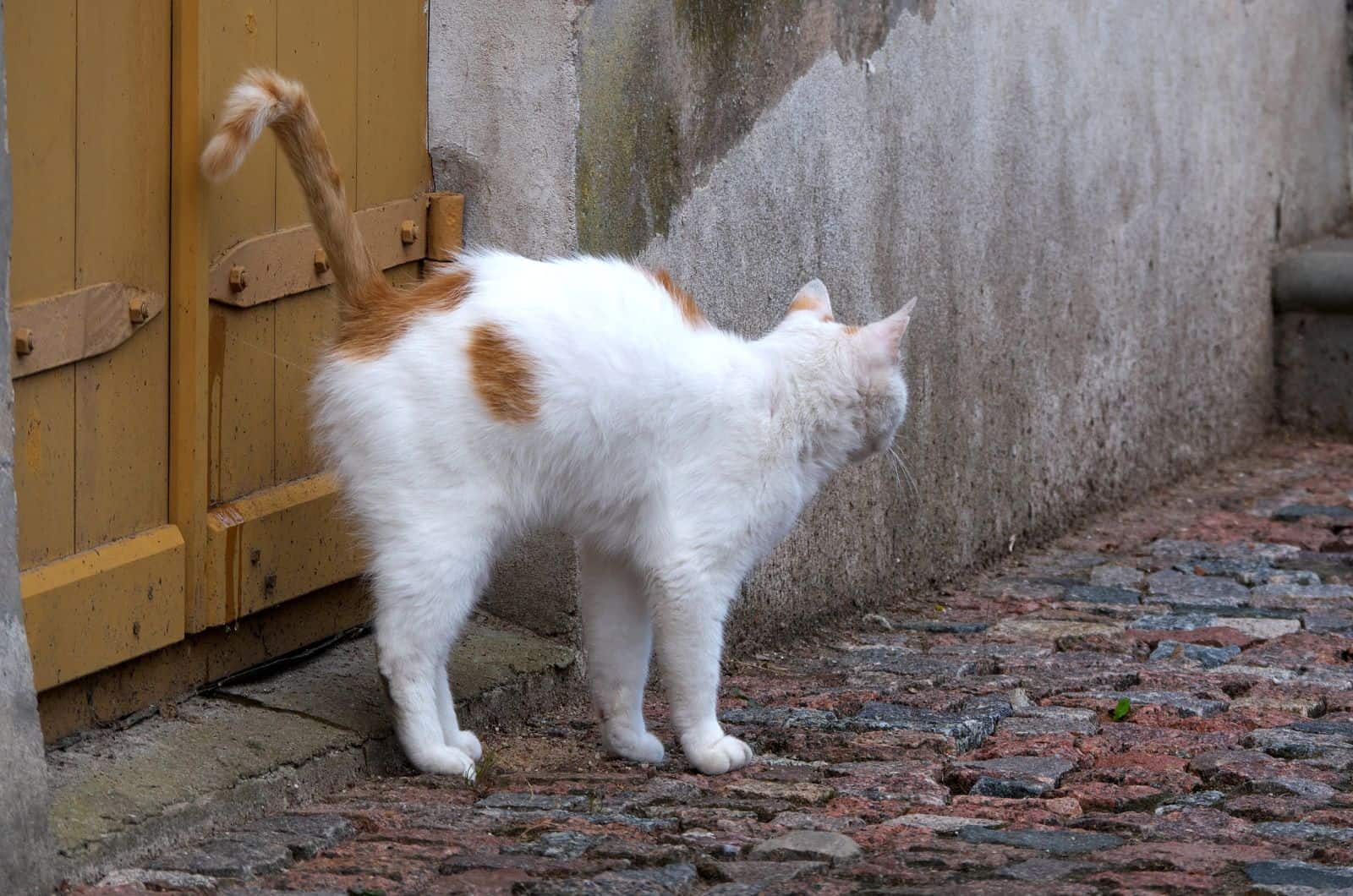
A female cat spraying can also be due to an underlying health issue that the cat is dealing with. Potential medical problems include:
• Arthritis
• Cystitis
• Urinary tract infection
• Kidney disease
• Diabetes
• Hyperthyroidism
Important Note
A lot of cat owners might miss the sign of an urinary tract infection (UTI) by mistaking a cat passing small amounts of urine with spraying.
In fact, it could be that your cat simply cannot pee normally, and is only passing small amounts of urine due to the pain of peeing.
Please make sure you don’t mistake your kitty having an UTI with spraying, as they’re two completely different things. Sometimes, UTIs need veterinary treatment, so make sure to catch the symptoms on time and get veterinary advice.
Does Female Cat’s Spray Smell?
You bet it does!
Both male and female cat’s urine is composed of the same compounds, and they do not smell nice!
The main component of urine is urea, which breaks down to form ammonia when exposed to air.
Ammonia is the main cause of urine’s unpleasant smell.
However, it must be noted that male cats have much more pungent-smelling urine. This is due to the presence of testosterone in their urine.
Un-neutered cats (intact male cats) have even more testosterone in their pee compared to neutered cats (making their urine smell the number one worst-smelling pee in the cat world!).
How Can A Female Cat Be Prevented From Spraying?
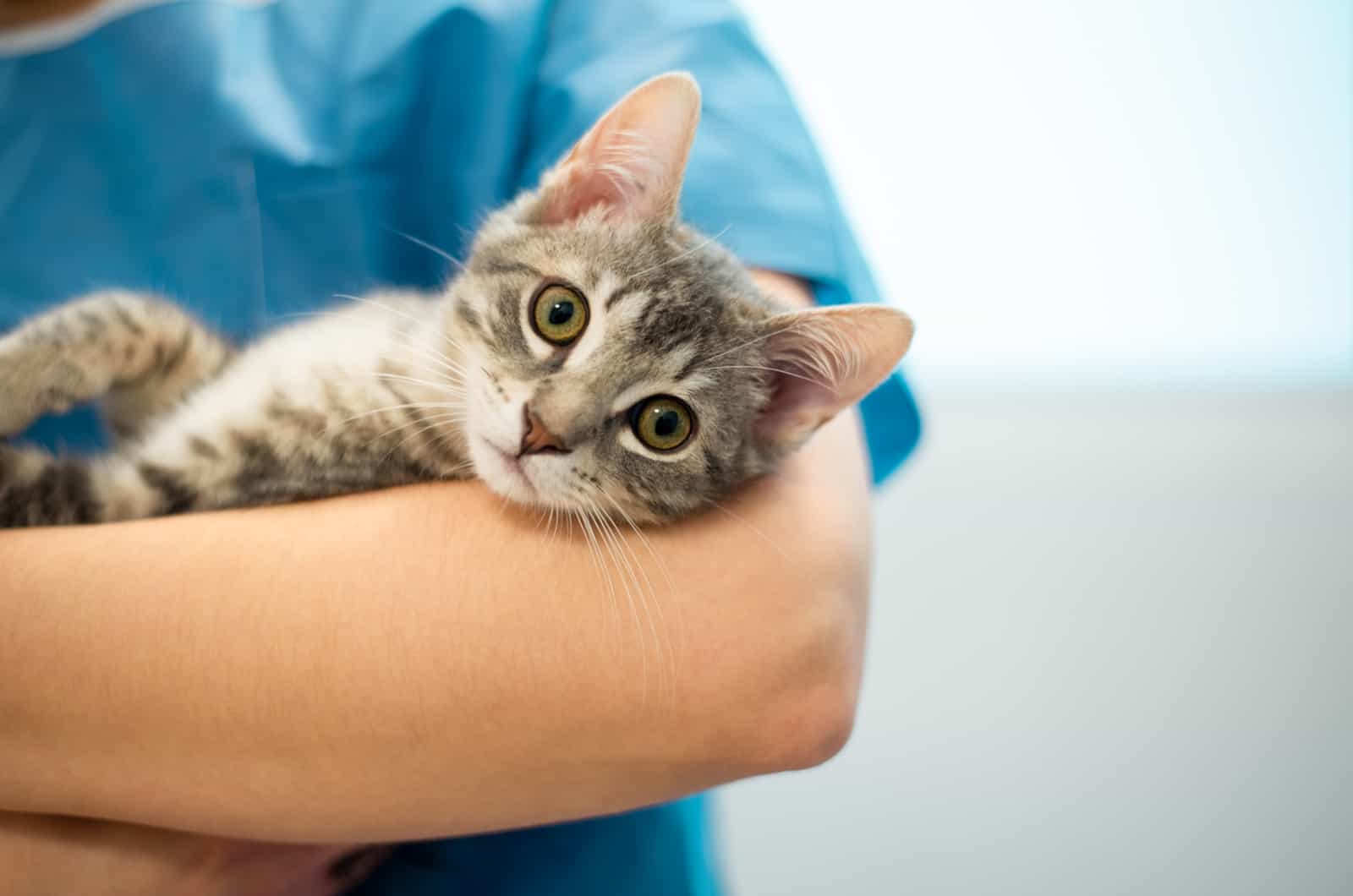
Urine marking is no fun for the cat owner, so stopping the cat from spraying is everyone’s number one priority!
1. Visit The Vet
First thing first, you should visit the vet in order to make sure your cat is not spraying due to underlying health issues. Inappropriate elimination is a potential symptom of a number of different medical issues.
In order to tackle your cat’s spraying behavior, it is best to first rule out any medical conditions that may be causing the spraying.
After you’ve been reassured that everything is okay with your pet’s health, you can try solving the spraying issue.
2. Provide A Stress-Free Environment
In order to stop your cat’s spraying, you need to get rid of whatever is causing the spraying behavior.
If you think your cat is spraying due to being stressed, you should devote some time to creating a stress-free environment for your cat and reassuring them.
How do you do that? Identify any potential stressors and then find out how you can reduce the effects they have on your cat.
For example, you cannot get rid of the new kitten you adopted, but what you can do is keep the kitten and your adult cat separated for some time, with the goal of allowing your cat to get accustomed to the presence of another pet cat in the home!
3. Try Pheromone Diffusers
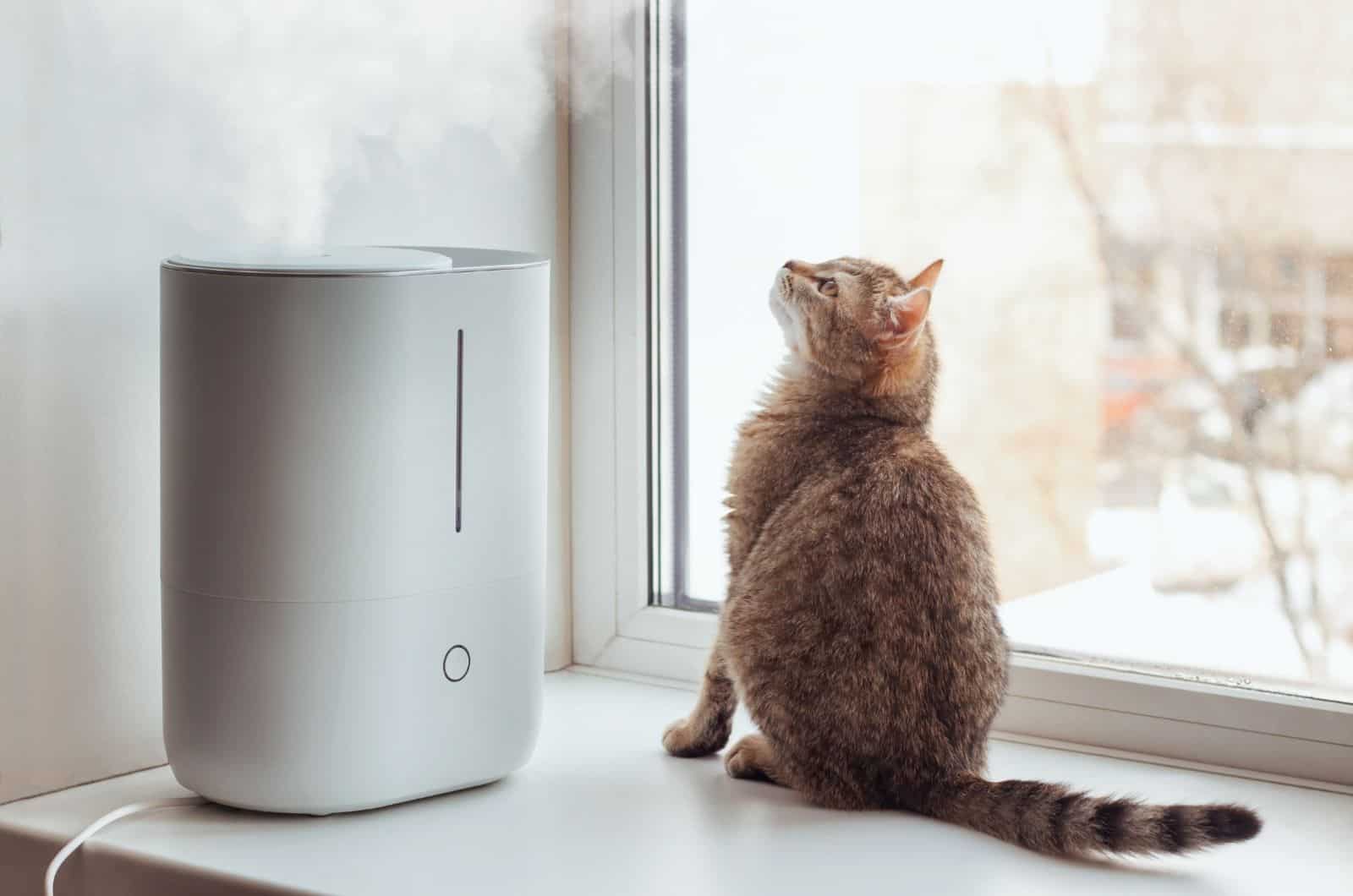
Pheromone diffusers are great if you want to calm your kitty and make them less anxious and stressed.
They are products that contain artificially-produced pheromones, which are molecules that mimic the pheromones that cats naturally produce.
Pheromone diffusers release pheromones into the air and are completely odorless for both humans and cats! However, they efficiently reduce your kitty’s stress and anxiety levels.
If pheromone diffusers and other methods don’t work, you can consult your vet about your kitty’s chronic anxiety or stress. The vet might prescribe some anxiety medication, which can eliminate your cat’s behavior problems, including spraying.
4. Keep Your Cat Physically And Mentally Stimulated
An active cat is a happy cat! And a happy cat is not a stressed cat prone to spraying!
It makes sense to invest your time in keeping your kitty physically and mentally stimulated, as this will make your cat very happy and reduce unwanted behavior! How do you do this?
• Invest in interactive cat toys
• Food puzzles are a great option too
• Re-consider getting that cat tree
• Cat perches are always a win-win
• Scratching posts are a must
• Play with your cat whenever you can
• Take your cat outside for a bit
• Install a bird feeder outside your window (cats love watching birds)
None of these require a lot of money or time. Try to spend at least 15 minutes a day playing with your cat (doesn’t matter if it’s an indoor cat or an outdoor cat), as even this short period of time can keep them healthy!
5. Spay Your Cat
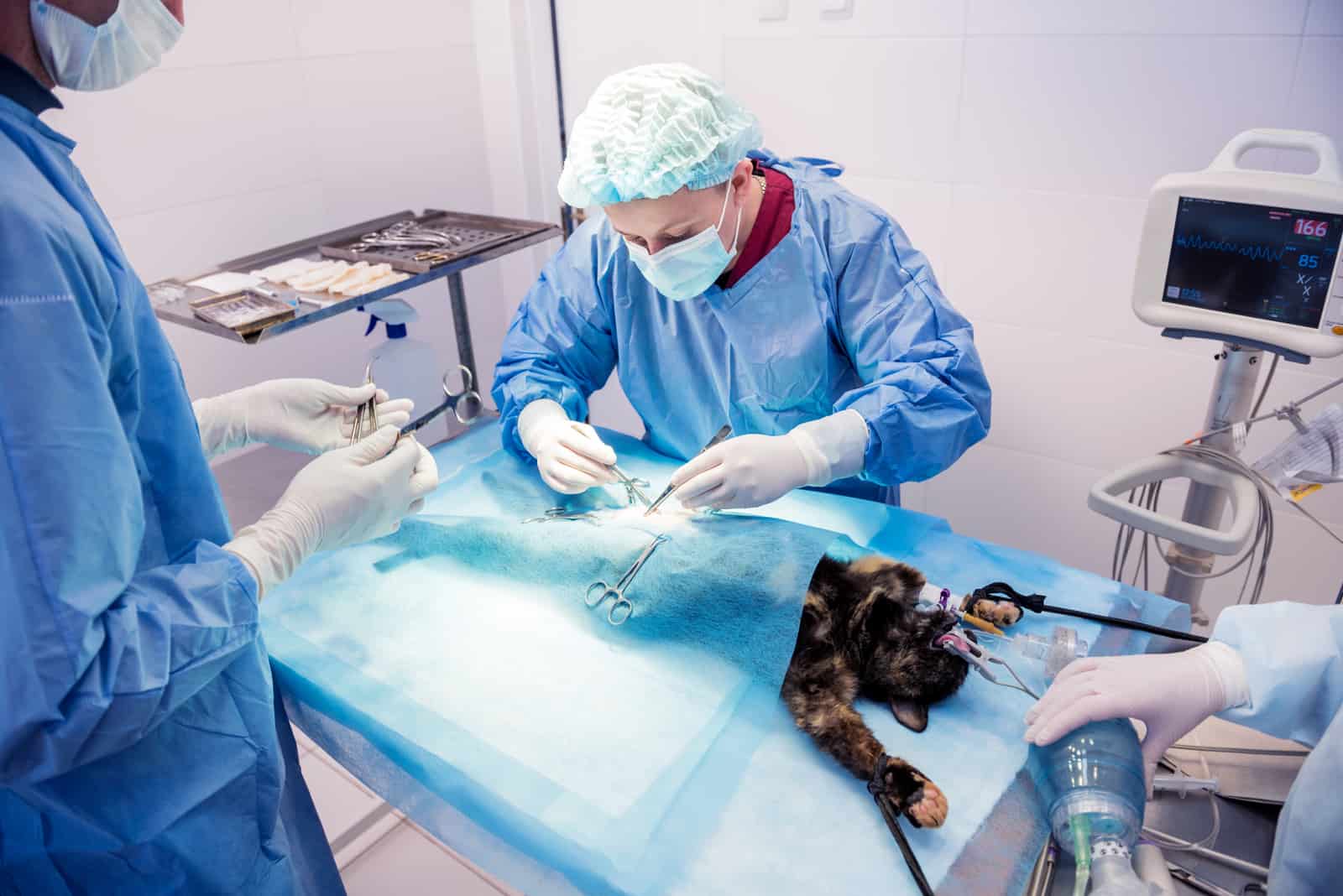
When female cats are in heat, they tend to spray more frequently. The reason for this is, of course, to attract male cats.
Spaying is a procedure that involves removing a female cat’s ovaries and uterus. The result is that the cat does not experience heat (the need to mate) anymore.
When female cats get spayed, they lose the desire to attract male cats, therefore they should stop spraying. This doesn’t always completely stop spraying, but it usually does.
The spaying procedure is recommended when a female cat is young, but older cats can get the procedure done too.
6. Identify Any Potential Litter Box Issues
Some cats are very picky when it comes to their litter boxes and litter. If you suspect your cat has been spraying as a way of protesting against its litter box, you should try to find out what exactly is wrong with the litter box.
Answering these questions might help:
• Have you repositioned the litter box?
• Did you get a new litter box?
• Did you change the type of litter in the litter box?
• Have you forgotten to empty the litter box?
If the answer is Yes to any of these questions – go ahead and make things right again!
7. Clean The House Thoroughly
In order to stop your cat from returning to the same spot in order to spray, make sure to clean that spot very well.
Cats have an amazing sense of smell and if the urine smell is not efficiently cleaned, they will have no trouble finding the spot again.
Enzyme-based cleaners are your best option. Quality enzymatic cleaners break down the proteins in urine which are responsible for the smell that draws cats back to the same place over and over again.
For a detailed explanation on how to clean cat urine, I suggest watching the video below:
In Conclusion
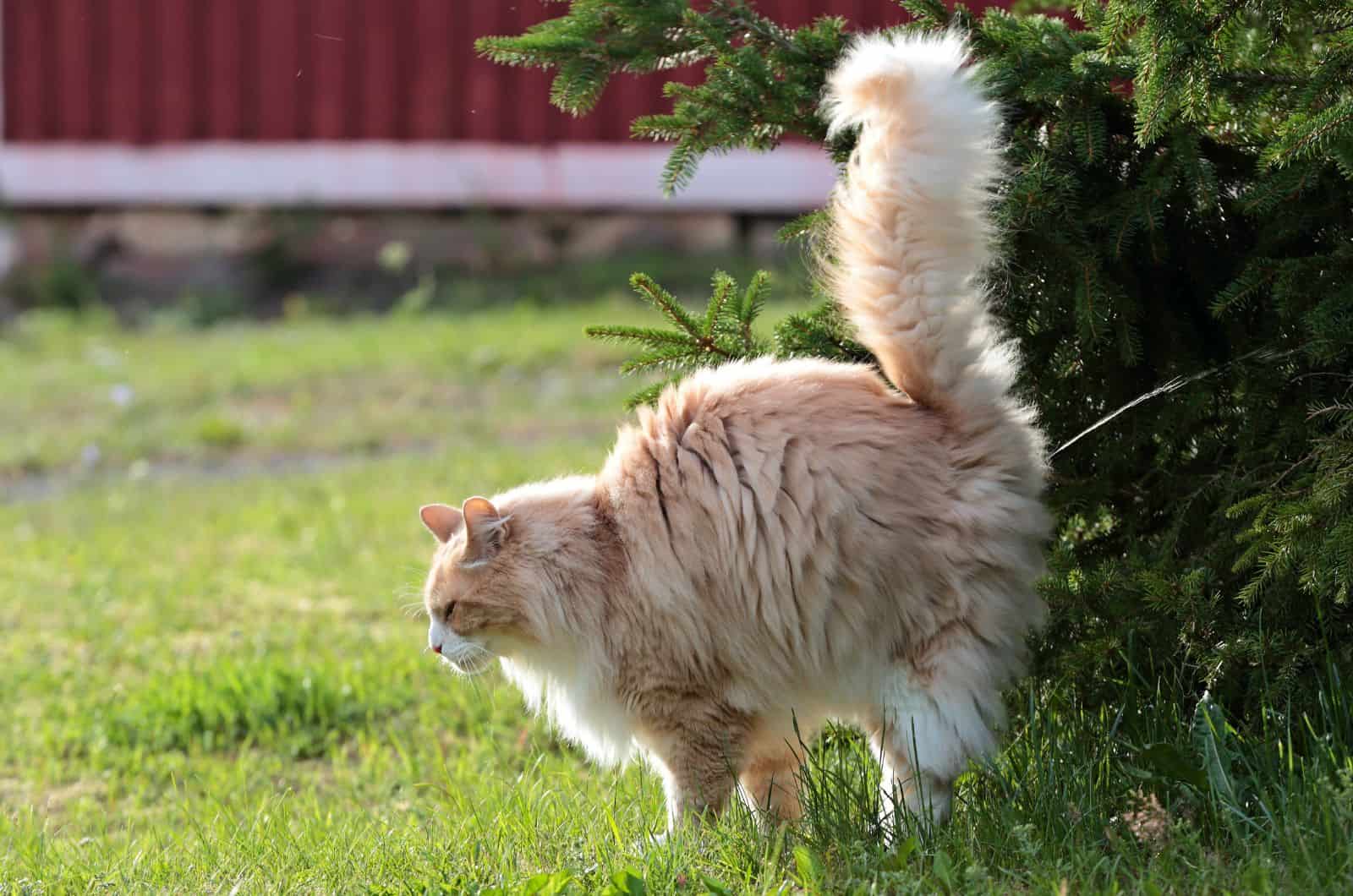
Although spraying is commonly associated with male cats, that is not the whole story. Do female cats spray? Yup.
Urine spraying is no fun for any cat owner. I’m sure every cat owner dealing with this issue is very eager to solve it! After you’ve figured out the cause of your female cat’s spraying, you can get down to solving your issue. I’m sure you’ll manage it and I wish you the best of luck!
Like this post? Share or pin it for later!
